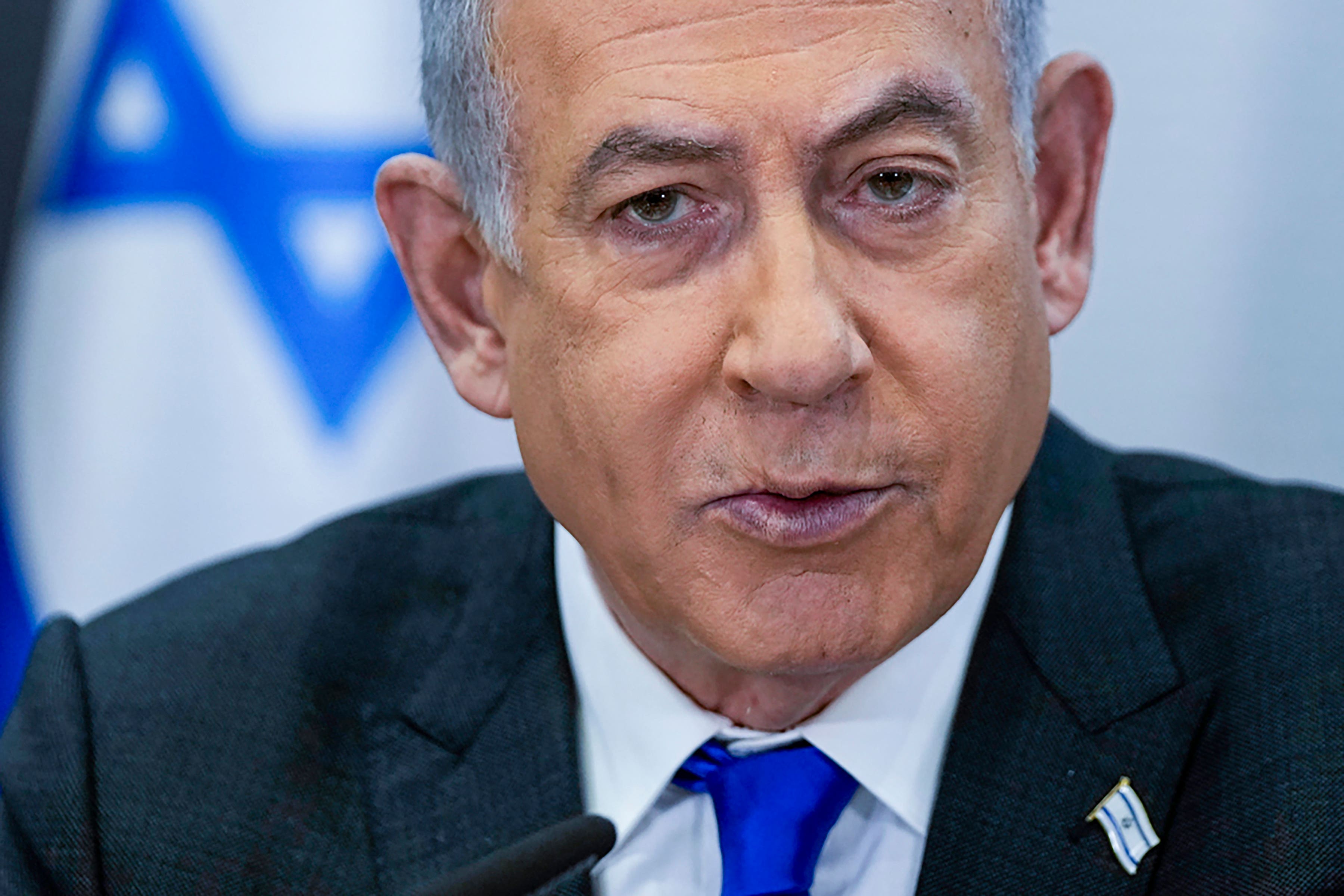ICC arrest warrants for Netanyahu and Hamas chiefs will not help – UK Government
A panel of three judges will decide whether to grant the ICC chief prosecutor’s application for arrest warrants relating to the Gaza conflict.

Your support helps us to tell the story
From reproductive rights to climate change to Big Tech, The Independent is on the ground when the story is developing. Whether it's investigating the financials of Elon Musk's pro-Trump PAC or producing our latest documentary, 'The A Word', which shines a light on the American women fighting for reproductive rights, we know how important it is to parse out the facts from the messaging.
At such a critical moment in US history, we need reporters on the ground. Your donation allows us to keep sending journalists to speak to both sides of the story.
The Independent is trusted by Americans across the entire political spectrum. And unlike many other quality news outlets, we choose not to lock Americans out of our reporting and analysis with paywalls. We believe quality journalism should be available to everyone, paid for by those who can afford it.
Your support makes all the difference.Seeking arrest warrants for Benjamin Netanyahu and other Israeli and Hamas leaders will not help achieve the UK’s aims of a sustainable ceasefire in Gaza, the Government has said.
The chief prosecutor of the International Criminal Court (ICC) has said he will apply for arrest warrants for the Israeli prime minister along with defence minister Yoav Gallant and Hamas leaders Yehya Sinwar, Mohammed Deif and Ismail Haniyeh, alleging they are responsible for war crimes in Gaza and Israel.
Karim Khan, the chief prosecutor, accused Israel of using “starvation as a method of warfare” and carrying out “collective punishment” of the population of Gaza.
Regarding the Hamas attack on Israel on October 7, he said the terrorist actions were “unconscionable crimes” that “demand accountability”.
We do not believe that seeking warrants will help get hostages out, get aid in, or deliver a sustainable ceasefire
Commenting on Mr Khan’s application for arrest warrants, a UK Government spokesperson said: “We do not believe that seeking warrants will help get hostages out, get aid in, or deliver a sustainable ceasefire.
“This remains the UK’s priority.
“As we have said from the outset, we do not think the ICC has jurisdiction in this case. The UK has not yet recognised Palestine as a state, and Israel is not a state party to the Rome Statute.”
In the Commons, defence minister Leo Docherty told MPs that Mr Khan’s application had “no bearing” on the UK’s decisions, adding: “We will make our judgements about the legality or our actions on our own terms, and we are confident in their legality”.
Deputy foreign secretary Andrew Mitchell also faced a backlash in the Commons after he said “we do not think the ICC has jurisdiction in this case”, adding: “The UK has not recognised Palestine as a state and Israel is not a state party to the Rome Statute.”
The Rome Statute is the treaty that established the ICC, with Israel not a signatory to it.
A report by a panel of international law experts, convened by the ICC prosecutor, agreed that the ICC has “jurisdiction in relation to crimes committed on the territory of Palestine, including Gaza, since 13 June 2014” under article 12 of the Rome Statute.
For Labour, shadow foreign secretary David Lammy told Mr Mitchell: “In his statement today, the Government has backtracked, U-turning on one of Britain’s most fundamental principles – respect of the rule of law.
“Labour has been clear throughout this conflict that international law must be upheld, that the independence of international courts must be respected and that all sides must be accountable for their actions.”
SNP foreign affairs spokesman Brendan O’Hara said: “We go down a dangerous road, minister, if we believe that the rule of law is something from which a government can pick and choose.”
Conservative former attorney general Sir Michael Ellis accused the ICC of a “grotesque overreach”, saying: “Courts must also act within the rule of law, and the jurisdiction of a court is something that it is not for itself to judge.
“The statute of Rome, which set up the International Criminal Court, clearly delineated the powers of the court.”
Sir Michael noted the ICC, under its founding charter, can “only act against a sovereign state which is a signatory”.
A panel of three ICC judges must consider Mr Khan’s application, in a process that takes an average of two months.
As Israel is not a member of the ICC, neither Mr Netanyahu nor Mr Gallant would be at immediate risk of arrest should the judges agree to issue warrants, but it could make it difficult for either man to travel abroad.
Two of the Hamas leaders named by Mr Khan are believed to be in hiding in Gaza, but Mr Haniyeh, the group’s overall leader, is based in Qatar.
Liberal Democrat leader Sir Ed Davey said the crimes alleged by Mr Khan were “among the worst imaginable”.
He said: “The UK must stand up for international law and give the ICC our full support to deliver justice.
“We must also suspend arms exports to Israel and press for an immediate bilateral ceasefire and the release of the hostages.”
Individuals subject to outstanding ICC arrest warrants include Omar Al-Bashir, the former president of Sudan alleged to be responsible for war crimes in Darfur, Saif Gaddafi, the son of former Libyan dictator Muammar Gaddafi, and Ugandan warlord Joseph Kony.